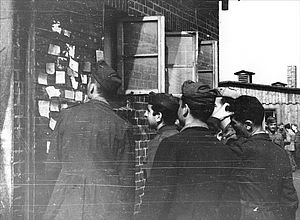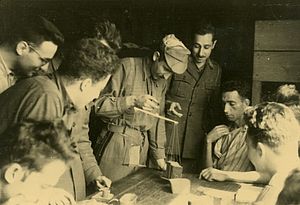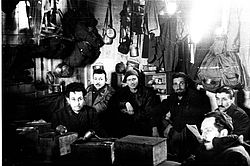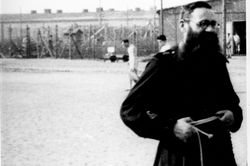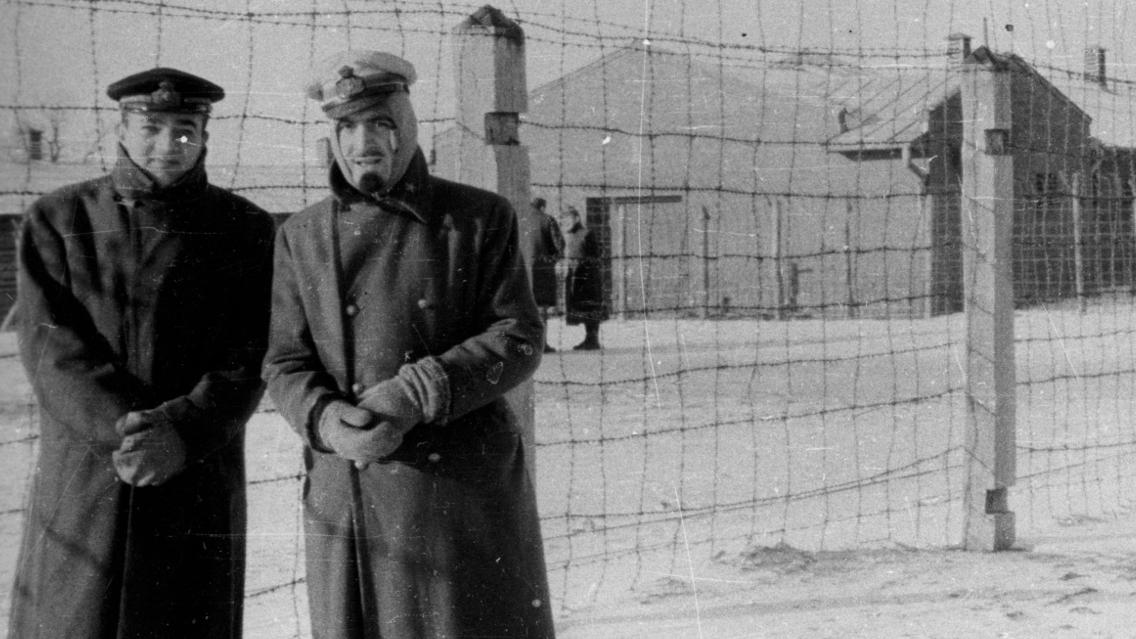
Forced inactivity of the officers
The Wehrmacht housed the Italian officers separately from the soldiers in officer camps (Oflag) or in separate sections of the regular crew camps (Stalag). They were mainly held captive in the occupied territories of Poland. With the advance of the Red Army to the west, they were transported to the German Reich from 1944.
The Italian officers were also declared military internees.
But the law of war was observed: until the beginning of 1945 they were exempt from forced labor. Some volunteered for work to improve their living conditions. Most officers suffered from the violence of the guards and the monotonous daily routine in the camp. They organized cultural activities and educational events to keep themselves occupied. This helped them maintain their self-respect.
"...and when we marched in a column through some streets in Germany, there were people spitting in our faces."
Michele Montagano, 2006
The everyday life of officers
The Italian officers offered goods or services in exchange for food. They hung up slips of paper with offers at the central meeting points of the camp. The interned officer Giovannino Guareschi, author of the books on "Don Camillo and Peppone" after 1945, kept some of the notes from Sandbostel.
Um die knappen Brotrationen gerecht zu verteilen, wogen die Offiziere sie auf einer selbst angefertigten Waage ab. Insgesamt war die Versorgungslage der Offiziere etwas besser als die der Soldaten.
From the exhibition
„Radio Caterina“
In Sandbostel, a group of technically experienced officers secretly managed to build a radio. They organised coins, tar from the roofs of the barracks and tin from cans. With the receiver, they heard messages from Radio London about the course of the war, endangering their lives. Then they dismantled the device into its individual parts and hid them. During raids, Don Grigoletto hid two parts of the radio under his cassock.
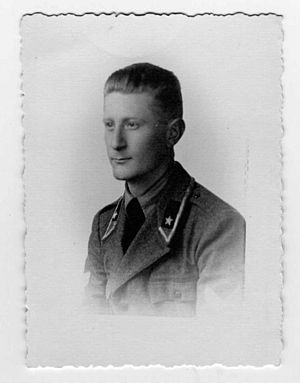
Michele Montagano
*1921
During his imprisonment Michele Montagano rejected several collaboration offers from German and Italian sides. He refused the work assignment for officers from 1945, despite the weapon directed at him.
The law student was called up for military service in February 1941. The Wehrmacht captured him in Italy in September 1943. He was sent via several camps to Oflag 83 in Wietzendorf. In February 1945, together with 213 other officers, he refused to work there at the Dedelsdorf air base in violation of international law. As a punishment, the Gestapo sent Montagano to the Unterlüß work education camp. Heavy labor and mistreatment were the order of the day there. Liberated in April 1945, he returned to Italy in August 1945. To this day, he is a champion of the Italian military internees.

